Table of Contents
Whether you are already a vegetarian, vegan, or considering becoming one of the two, it can be difficult to discern between a vegetarian diet and a vegan diet. While both plant-based diets appear similar at first glance and have many shared dietary restrictions, there actually exists meaningful distinctions between them. Becoming familiar with these differences is key for effectively planning meals that nourish your body while staying true to your lifestyle and beliefs.
We’ll guide you through all the intricacies of each diet in this comprehensive post: Vegetarian vs Vegan Diets: Detailed Explanations!
What is Vegetarian?
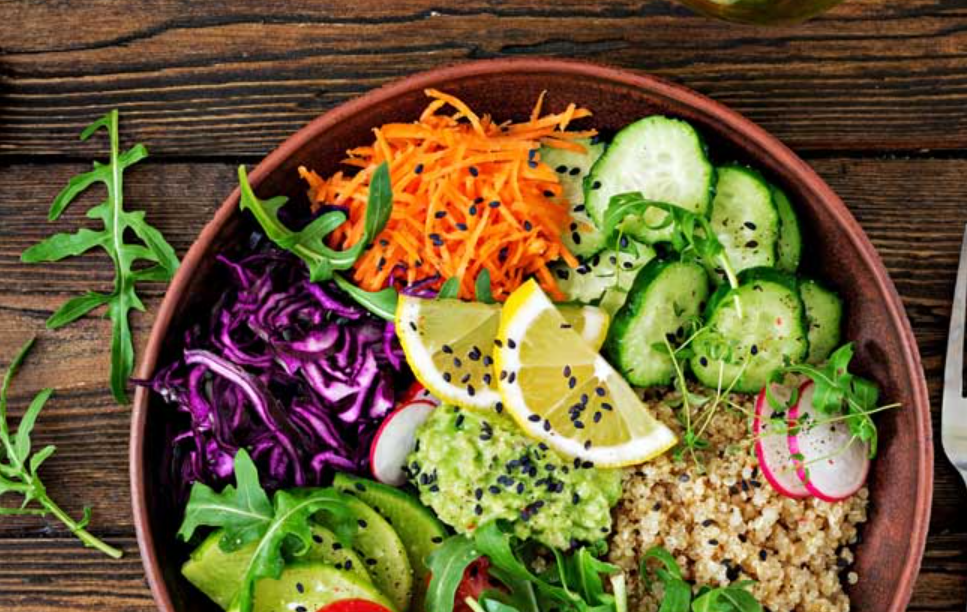
Vegetarians are people who do not eat the flesh of any animals, including cattle, poultry, fish, and other sea life. However, vegetarians might still consume animal byproducts such as dairy products or eggs. It is important to note that some vegetarians may avoid eggs and/or dairy out of ethical concern for animal welfare; however this type of vegetarianism is commonly referred to as “veganism” (more on that later).
The more common forms of vegetarianism include:
- Lacto-ovo Vegetarian: This term describes vegetarians who do not eat meat but do consume both dairy products and eggs.
- Lacto-Vegetarian: These individuals follow a diet consisting only of plant-based foods, dairy products, and eggs.
- Ovo Vegetarian: Ovo vegetarians eat only plant-based foods and eggs but not dairy products.
- Pesco/Pollotarian: A pesco vegetarian is someone who does not consume red meat or poultry but does include seafood as part of their diet. Pollo vegetarians do the same but exclude seafood.
What is Vegan?
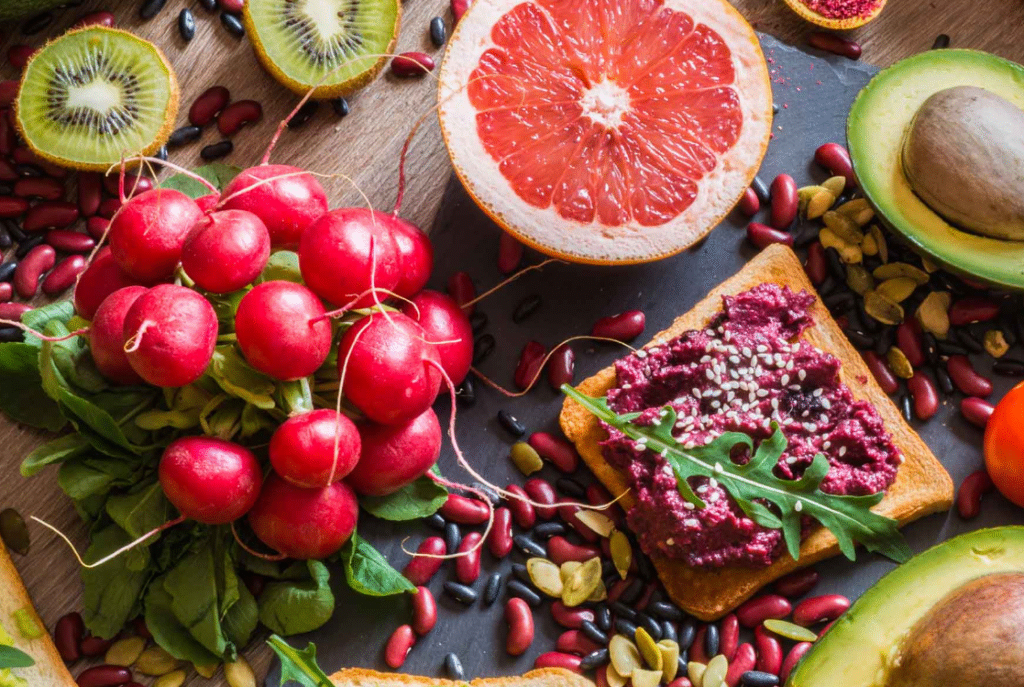
Vegans strictly adhere to a diet that excludes all animal products and byproducts, including honey, dairy, eggs, gelatin, wool, fur, silk and leather. This means that vegans consume only plant-based foods like grains, legumes (beans), nuts and seeds; fruits and vegetables; herbs and spices; and other plant-based ingredients. Moreover, many vegans also take the extra steps to avoid animal-derived products outside of their diets.
Differences between Vegetarian and Vegan Diets
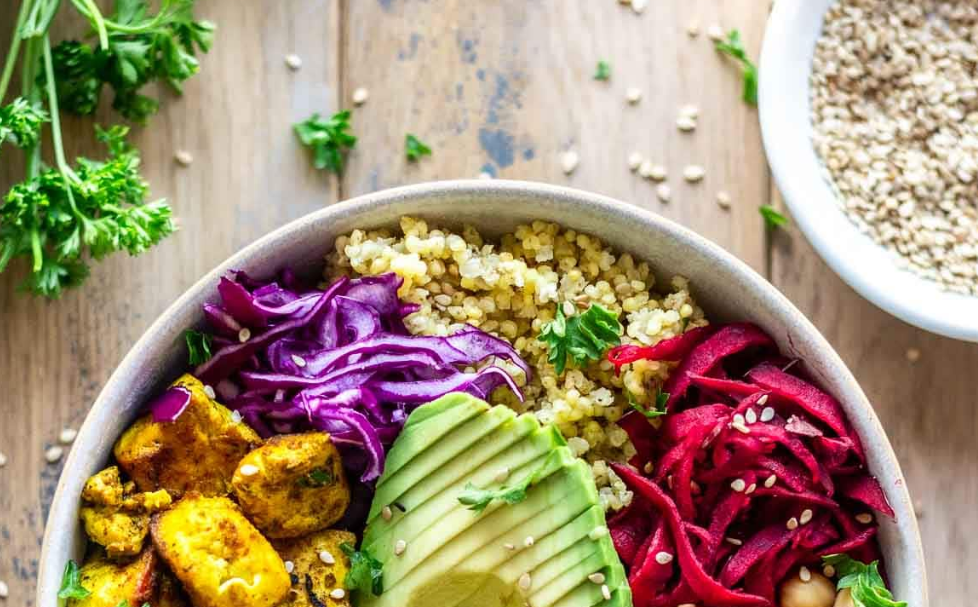
Food Choices
As discussed above, vegetarian diets allow for the consumption of animal byproducts including dairy and eggs. Conversely, vegans avoid all animal products both in their diet and lifestyle.
Nutrient Intake
Studies have found that participants on vegetarian diets tend to consume more fiber and fewer saturated fats than non-vegetarians. However, a vegan diet can be even healthier as it eliminates foods such as cheese that are high in saturated fat. Vegans also typically have higher intakes of vitamins C and E, folate, magnesium, iron, potassium, antioxidants and phytochemicals than vegetarians do.
Environmental Impact
The environmental impact of vegetarian vs vegan diets is an often overlooked difference between the two but is nonetheless important to consider. A vegan diet requires less land for food production and has been linked with lower greenhouse gas emissions. Additionally, vegan diets require fewer resources like water to produce than vegetarian diets that include dairy and eggs.
Physical Impact on the Body
While some individuals may feel very satisfied and healthy following a vegetarian diet, experimental evidence suggests that vegans may have even greater health benefits than vegetarians. This includes lower risks of developing heart disease and type 2 diabetes. Additionally, vegans tend to weigh less than both omnivores and vegetarians do.
Common Misconceptions
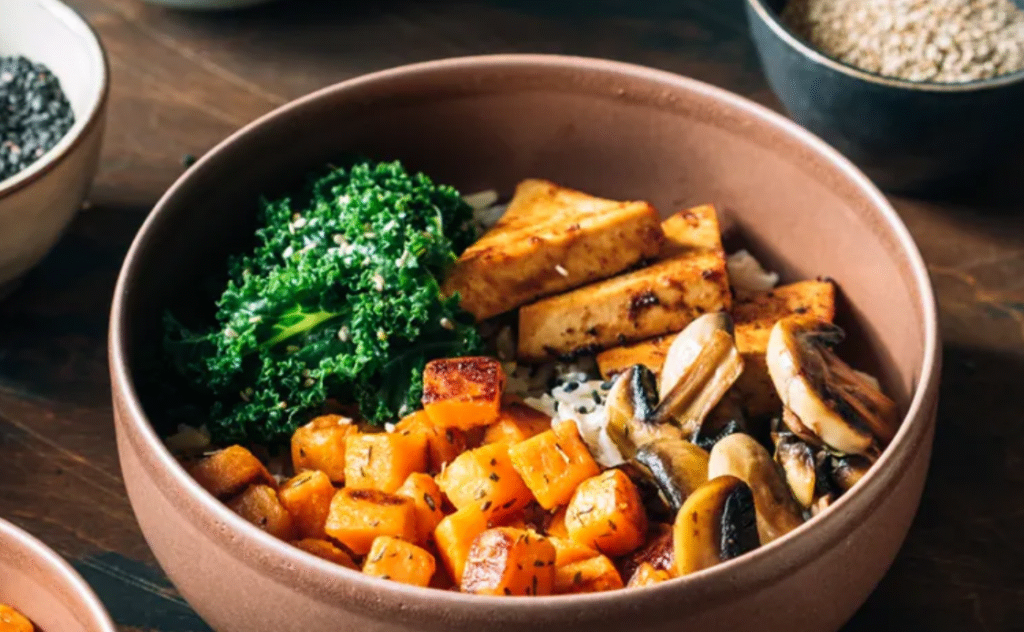
All Plant-based Foods are Healthy
Contrary to popular belief, plant-based diets do not automatically mean healthy. Many of the common vegan foods such as chips, fries, cookies and ice cream are still processed and high in calories even if they don’t contain animal products. Similarly, a vegetarian diet can be unhealthy due to high dairy or egg consumption if the individual is not careful.
Vegetarians and Vegans Don’t Get Enough Protein
False! Protein can easily be obtained from plant-based foods such as grains, nuts and legumes. Additionally, many dairy products are high in protein if they are included in the vegetarian diet.
All Plant-Based Foods are Expensive
While some vegan products may be pricier than their animal-based counterparts, there are plenty of budget-friendly plant proteins such as dried beans and lentils. Fruits and vegetables can also be purchased fresh or frozen at low costs.
Advantages and Disadvantages of Both Diets
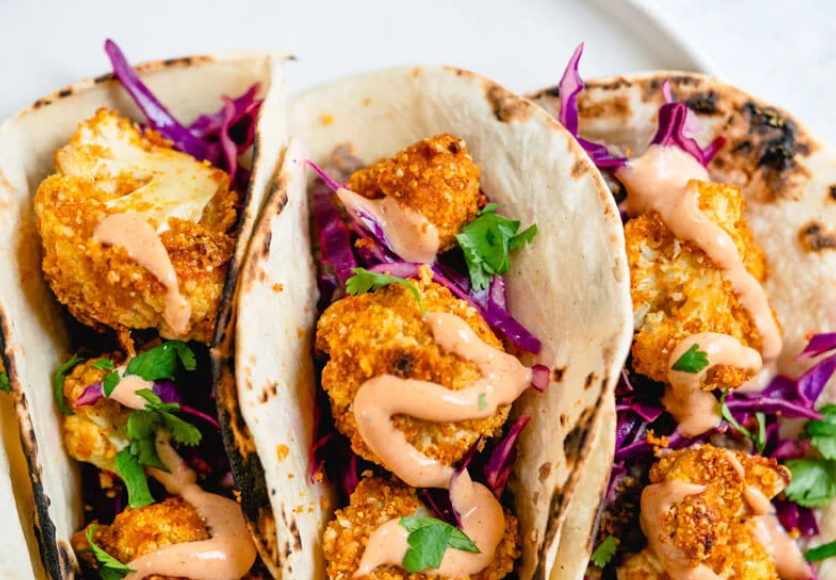
The vegetarian and vegan diets both have numerous advantages as well as some potential drawbacks. The primary benefits are the health benefits associated with both diets as mentioned above. Additionally, these diets can be more sustainable for the environment and animal welfare since they eliminate the need for animal products in food production.
However, there may be some disadvantages to eliminating animal products from one’s diet. For example, vegans and vegetarians may have a harder time getting enough vitamin B12 which is normally found in animal products. Further, due to their exclusion of certain foods such as dairy or eggs, individuals on either diet may need to take extra steps to get adequate nutrition or supplement if necessary.
Health Benefits of Both Diets
The health benefits associated with vegetarian and vegan diets include lower risks for obesity, heart disease, diabetes and certain types of cancer. Additionally, both diets are naturally low in cholesterol and saturated fat which can help to reduce the risk of developing high blood pressure or other cardiovascular issues. Finally, these diets have been linked with improved mental wellbeing and stress reduction.
Suggestions for Eating a Balanced Plant-Based Diet
When eating a vegetarian or vegan diet, it’s important to pay attention to adequate nutrition. Here are some suggestions for creating a balanced plant-based meal plan:
- Eat plenty of fruits and vegetables each day.
- Include whole grains such as oats, quinoa and brown rice in your daily meals.
- Legumes such as lentils, beans and peas are great sources of protein and fiber.
- Nuts and seeds can be nutritious additions to meals or snacks.
- Add plant-based milks, yogurts and cheeses for dairy sources if desired.
- Take a vitamin B12 supplement or include B12 fortified foods to avoid a deficiency.
- Consider adding omega-3 fatty acid supplements if you do not eat fish or seafood.
- Avoid processed vegan foods such as chips, fries and sweets unless they are part of an occasional treat.
Frequently Asked Questions | Vegetarian vs Vegan Diets
1. Is one diet healthier than the other?
Overall, a vegan diet can be considered healthier than a vegetarian diet due to its increased focus on whole plant-based foods which are typically higher in fiber, antioxidants and other vitamins & minerals than their animal-based counterparts. For example, vegan diets tend to be naturally higher in iron, calcium and Vitamin B12 than vegetarian diets.
2. Are there any medical benefits associated with either diet?
Vegan and vegetarian diets have been linked to numerous health benefits including reduced risk of cardiovascular disease, obesity, type-2 diabetes & certain types of cancer. They are also thought to improve gut health due to their increased focus on fiber-rich plant foods as well as the potential for decreased inflammation from eliminating animal products from the diet.
3. What type of foods should I eat on a vegan or vegetarian diet?
The foundation of both vegan and vegetarian diets should include a variety of whole plant-based foods such as fruits, vegetables, legumes, nuts/seeds, grains, and plant-based proteins. Vegans may also want to incorporate fortified foods such as tofu, soymilk, or nutritional yeast for increased vitamin B12 intake.
4. What are some potential pitfalls of a vegan or vegetarian diet?
One potential downside of a vegan/vegetarian diet is the potential for nutrient deficiencies if certain animal sources of nutrition (such as eggs & dairy) are not replaced by appropriate plant-based sources. Additionally, it’s important to be mindful of processed vegan/vegetarian alternatives that may contain unhealthy levels of added sugar and sodium.
5. How can I make sure my diet is healthy?
The key to making sure your vegan or vegetarian diet is healthy is to make sure you are getting enough of the key nutrients your body needs from a variety of sources. Aim for 5-9 servings of fruits & vegetables per day, and include a variety of whole grains, legumes, nuts/seeds, and plant-based proteins to ensure adequate intakes of vitamins minerals & fiber.
6. Is it possible to switch my diet?
Yes! Changing your diet can be intimidating but there are many resources available to help you make an easier transition. Start by exploring vegetarian or vegan recipes that pique your interest; take some time to learn about animal product alternatives such as soy milk, tofu and veggie burgers; and experiment with different plant-based foods to find what works best for you. And don’t forget to be patient with yourself; it takes time to get used to a new lifestyle.
Conclusion
Vegetarian vs vegan diets have several key differences in terms of what they allow for food consumption and their environmental and physical impacts on the body. Vegetarians generally consume dairy and eggs while vegans avoid any animal byproducts. Furthermore, vegan diets tend to have greater health benefits than vegetarian diets do because they eliminate higher fat foods like cheese. Additionally, veganism has a lower environmental impact due to less land use and fewer resources needed to produce plant-based foods only.
Read more at Ohsnap Cupcakes!